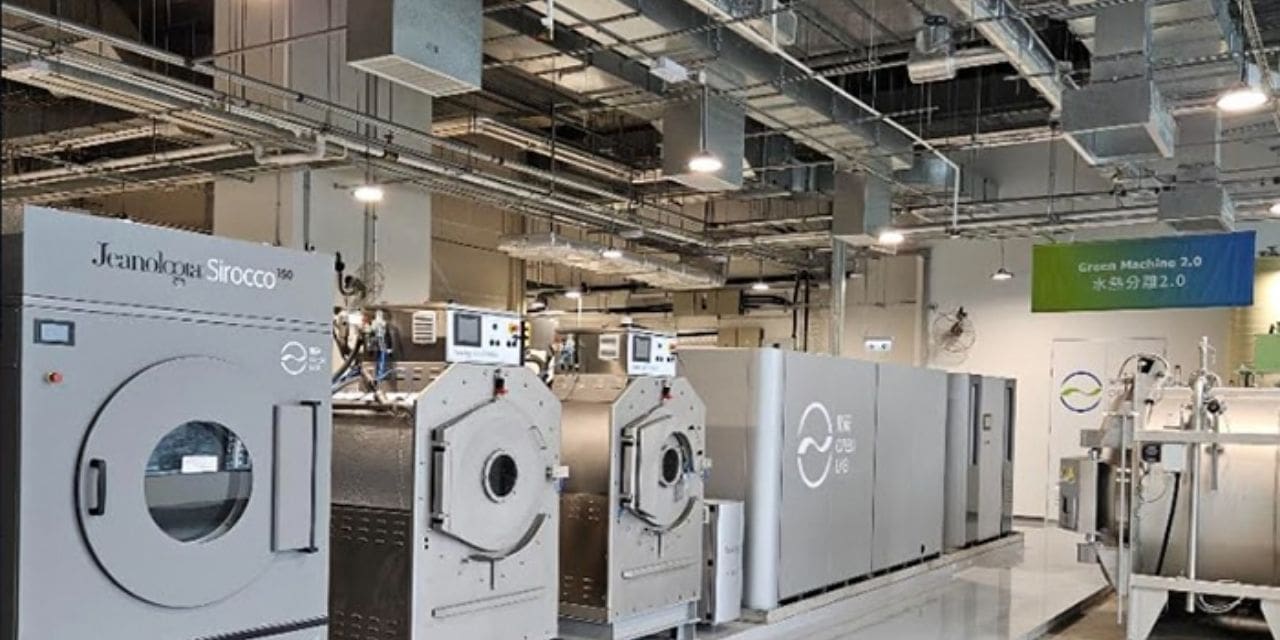It will be one of the most advanced centers in the world for the research and development of sustainable textile technologies.
The Spanish company is contributing its technology and R&D expertise to the lab to support the ambitious Green Machine 2.0 project.
Valencia (September 24, 2024). The Hong Kong Research Institute of Textiles and Apparel (HKRITA) and the H&M Foundation are spearheading the Open Lab program, which Jeanologia has joined. The initiative’s goal is to establish a vibrant center that will serve as a catalyst for innovations aimed at addressing climate change throughout the textile value chain.
Situated in the Advanced Manufacturing Centre of Hong Kong, this innovative laboratory covers 1,800 square meters and is devoted to investigating and creating eco-friendly textile solutions. In addition to housing more than 80 sustainability-focused initiatives, it will work as a hub for suppliers, manufacturers, and brands to collaborate on the development of scalable solutions that will increase industry efficiency and circularity. The lab creates a link between discoveries in the research phase and their real-world implementation in the textile production process.
As a member of the Open Lab ecosystem, Jeanologia shares HKRITA’s principles and contributes its technology and R&D to the Green Machine project’s advancement. “The creation of the Open Lab presents a unique opportunity to unite brands, manufacturers, and suppliers in a collaborative, innovation-driven environment,” says Enrique Silla, CEO and creator of Jeanologia. We are optimistic that we will achieve great progress toward a more circular and effective textile future in collaboration with HKRITA and the H&M Foundation.”
With the goal of lowering the amount of water, chemicals, and energy used in the textile industry, Jeanologia has launched some of its most cutting-edge technological solutions in this innovative field. One of the most significant breakthroughs is the H2 Zero water recovery system, a closed-loop method that uses less energy and permits the reuse of water without the need for chemicals. The eco-friendly Smart Box washing line, which dramatically reduces the amount of water, electricity, and chemicals used while washing textiles, is another element of the lab. Furthermore, e-Flow technology accurately applies chemicals to clothing using nanobubbles while using the least amount of water and producing no waste. The G2 technology is another feature. It produces ozone from atmospheric air and combines it with textile dyes to give clothing a realistic worn-in look without emitting any emissions and using a significant amount less water and chemicals.
The new Open Lab, located at Hong Kong Polytechnic University and supported by the Hong Kong government’s Innovation and Technology Commission, seeks to lead the world in industry solutions and applied research. The Pilot Plant, an industrial-scale recycling process intended for technology testing and demonstrations, is the focal point of the complex. Additionally, it has the Green Machine 2.0, which can recycle up to a ton of material per day and efficiently separates polyester fibers from blended PET-cotton fabrics.
By the end of 2024, the Open Lab should be fully operational, solidifying its position as one of the most cutting-edge research and development hubs for sustainable textile technologies worldwide.
With its engagement in this enormous initiative, Jeanologia, a company widely recognized for its innovative inventions, reaffirms its leadership in revolutionizing the textile sector. The Spanish business highlights how cooperatively it is tackling the urgent sustainability issues the industry is facing. Enrique Silla states, “We firmly believe that eco-efficiency will be the future of fashion, and through partnerships like this one, we are building that future today.” He also notes that “technological innovation is key to solving the most urgent challenges the industry faces.”

